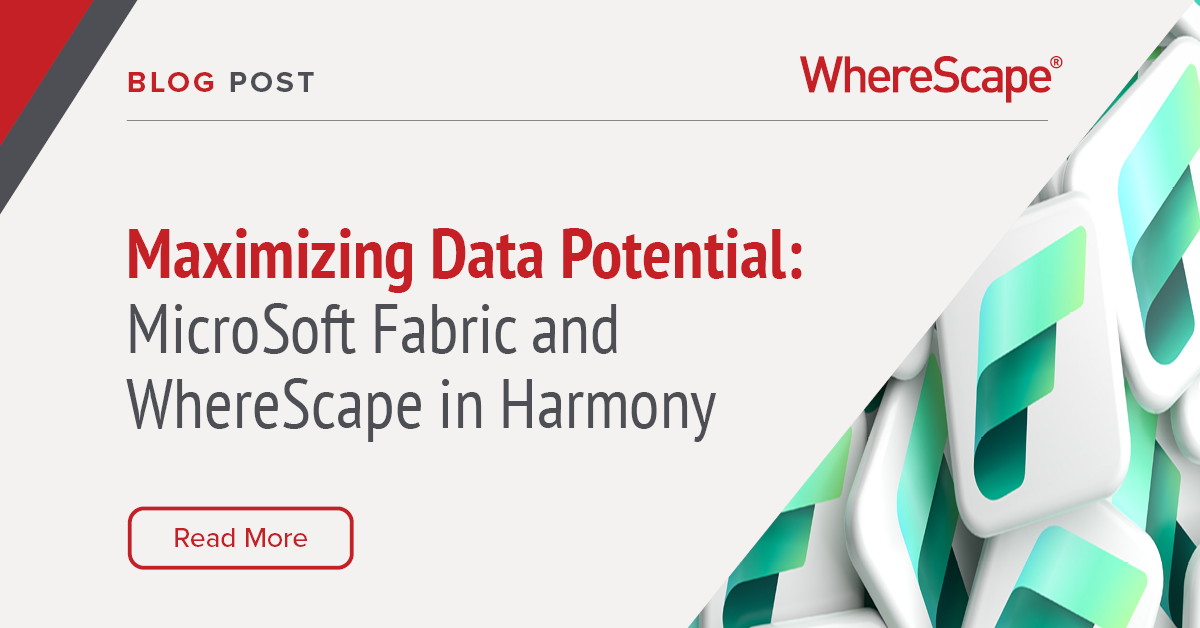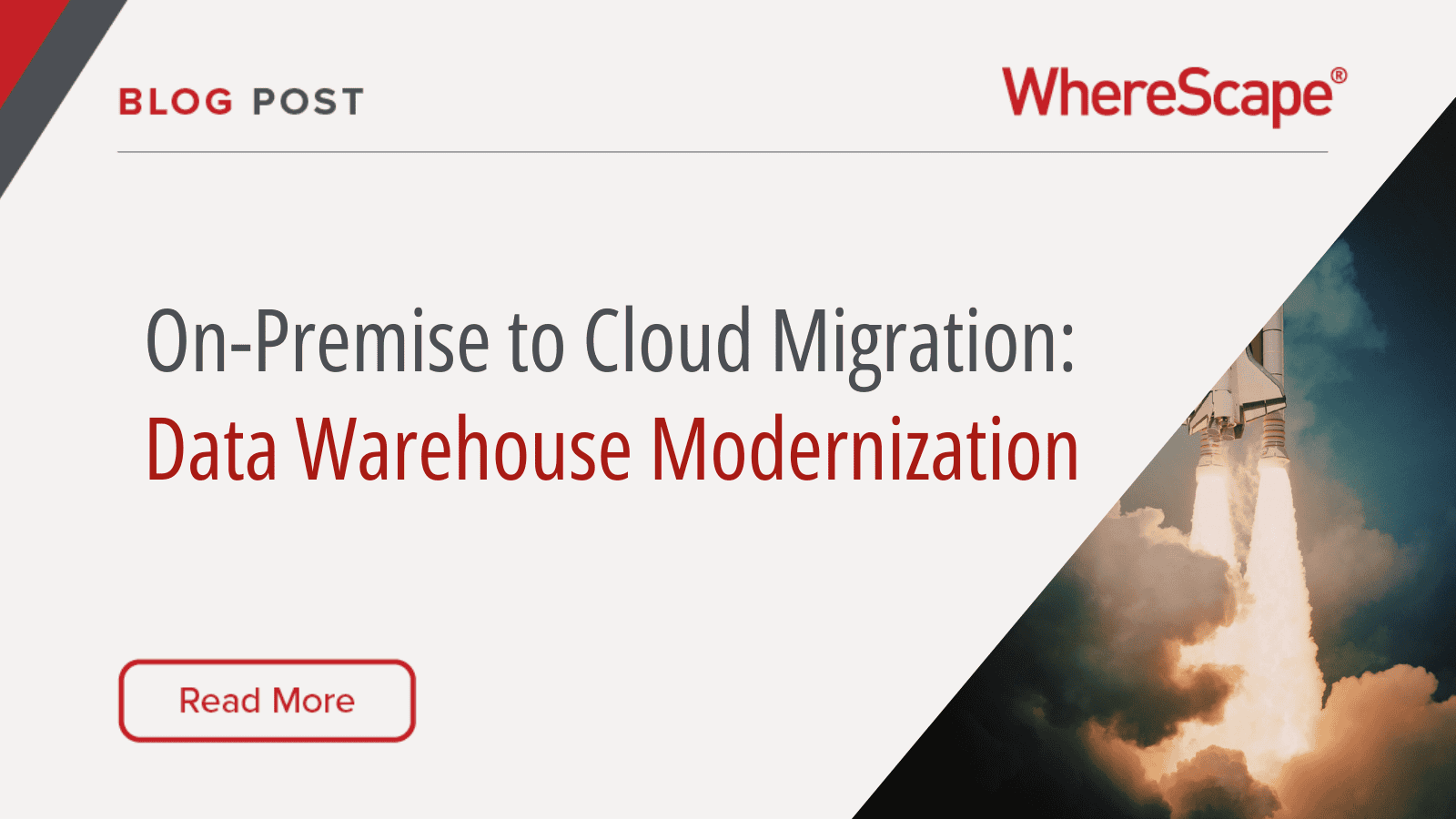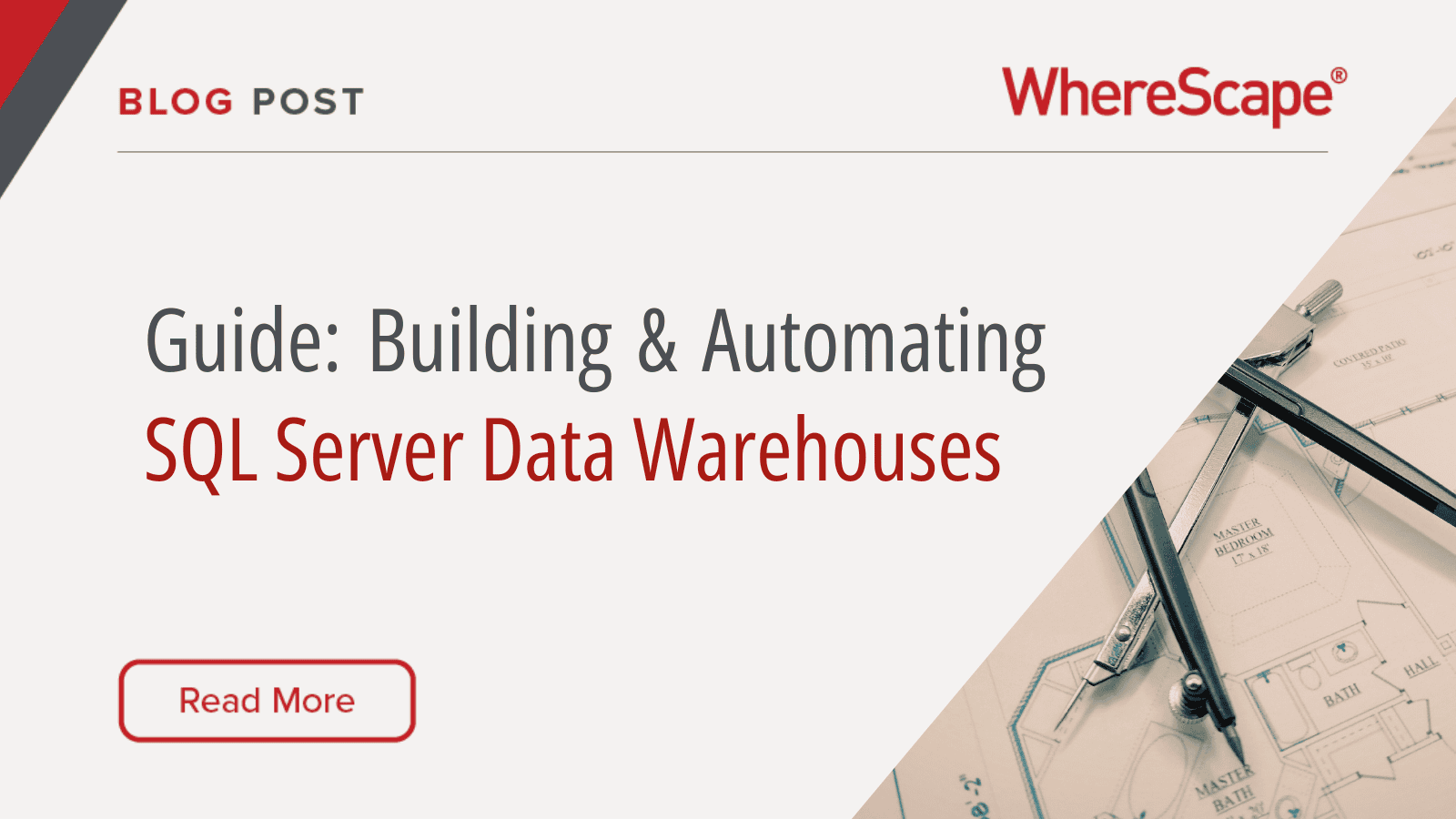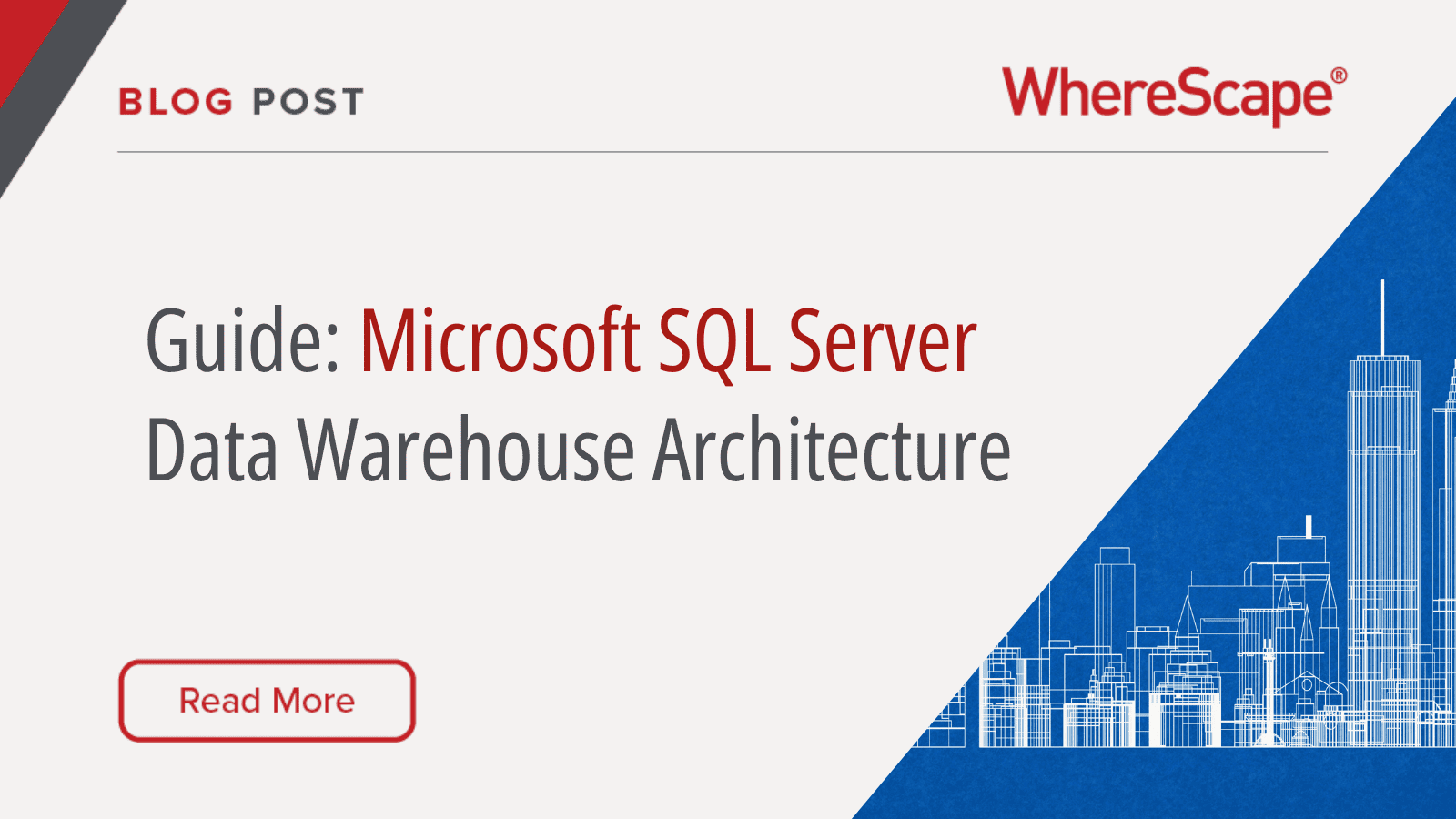Forget gold. Forget oil. We are living in an era where data is our most precious commodity. As organizations strive for deeper insights into how their products perform, how their brand is perceived, and how customers behave, the need for stronger and more efficient analytical tools has never been greater.

That’s why you have likely seen an advertisement for Microsoft’s newest product, Microsoft Fabric. One of the company’s biggest launches in years, Microsoft Fabric is the answer to the market’s ‘call for help’ for improved, user-friendly data analytics. Introduced a few short months ago in November 2023, Microsoft Fabric is already making waves in the data management industry, and here at WhereScape, we understand the importance of this new platform. That’s why we’ve been involved from the start.
Since Microsoft Fabric’s inception, we’ve been hard at work developing integrations to ensure that not only are our automation tools unified with the platform, but that efficiencies are implemented to create an even better, synergistic effect when using the two tools together. Let’s delve deeper into the world of Microsoft Fabric and WhereScape, exploring how their features will propel your data management to a whole new level.
A Closer Look into Microsoft Fabric

At its core, Microsoft Fabric offers a comprehensive platform that seamlessly integrates various Microsoft services. From data lakes to data engineering and data integration, Fabric consolidates these functionalities into a unified ecosystem designed to simplify and streamline data management processes.
OneLake, the cornerstone of Microsoft Fabric, serves as a unified logical data lake that facilitates seamless data storage and management. By leveraging OneLake, organizations can consolidate data from disparate sources into a centralized repository, breaking down data silos and enabling efficient data discovery and exchange.
What sets Microsoft Fabric apart is its Software as a Service (SaaS) model, which provides a simplified and intuitive user experience. Fabric seamlessly integrates with existing Microsoft tools like Power BI, Azure Data Explorer, and Azure Synapse Analytics, offering advantages in terms of reduced integration time and efficient data exchange across hybrid and multi-cloud environments.
Exploring the Benefits of Microsoft Fabric
As Microsoft Fabric continues to revolutionize data management by offering a comprehensive suite of features designed to simplify, unify, and enhance the data handling capabilities of businesses, let’s dive into the key advantages of adopting Microsoft Fabric for your organizational needs.
Simplicity
Microsoft Fabric simplifies data integration by consolidating diverse data sources into a single, multi-cloud data lake powered by Azure. Its intuitive interface allows users to drag and drop data effortlessly, providing a seamless user experience that accelerates data workflows.
Unification
Microsoft Fabric unifies all aspects of data management within a Lake-centric experience, lowering the effort of data integration, governance, and security. By providing a centralized platform for data management, Microsoft Fabric fosters collaboration and efficiency across teams.
Infused with AI
Leveraging Microsoft’s latest Artificial Intelligence, Copilot, Microsoft Fabric empowers users to work smarter and faster. Copilot enhances productivity across data workflows by enabling conversational SQL, custom generative AI experiences, and simplified data exploration.
SaaS Foundation
Microsoft Fabric’s SaaS foundation offers access to a wide range of deeply integrated analytics services, ensuring consistent user experiences and centralized administration and governance across all services. With Microsoft Fabric, organizations can leverage the power of Microsoft’s analytics ecosystem without the complexity of managing individual services.

Enhancing Microsoft Fabric with WhereScape
WhereScape serves as a catalyst for accelerating the adoption of Microsoft Fabric, particularly in the realm of data migration and integration. By automating tasks and simplifying workflows, WhereScape enables organizations to seamlessly transition to Fabric and maximize its capabilities.
Migration
WhereScape streamlines the migration process to Microsoft Fabric, ensuring a smooth transition from legacy systems or other data platforms. Its automation capabilities accelerate time-to-value, allowing teams to realize the benefits of Microsoft Fabric quickly.
Transformation and Modeling
Within Microsoft Fabric, WhereScape simplifies data modeling and transformation processes, enhancing agility and efficiency. Its low-code interface enables users to build, deploy, and manage data pipelines with ease, reducing development time and costs.

Data Lineage and Documentation
WhereScape provides clear visibility into how data flows through Microsoft Fabric, ensuring compliance and simplifying audit requirements. By tracking data lineage transparently, WhereScape enhances documentation processes for data assets, promoting transparency and accountability.
Expanding Beyond OneLake
WhereScape harnesses the strengths of Microsoft Fabric while enabling data integration across multiple platforms. Whether it’s Data Vault support or integration with Azure Data Factory, WhereScape offers versatility and flexibility for companies embracing Microsoft Fabric, empowering them to leverage their data assets to drive business success.
Charting the Course Forward with WhereScape
As companies navigate the ever-turning tides of advanced data analytics, the combination of Microsoft Fabric and WhereScape emerges as a beacon on the horizon. Together, they offer a smooth course to simplicity and agility, empowering businesses to unlock the full potential of their data assets and business intelligence.
Microsoft Fabric’s journey is just beginning, and many new exciting features await. WhereScape has been interwoven with Microsoft Fabric since the beginning and will continue the voyage toward new possibilities together, shipmates from the start. A new world of data management begins with embracing the capabilities of Microsoft Fabric and WhereScape. Contact us to see how we can tailor our solutions to your needs and propel your business into the digital age.



